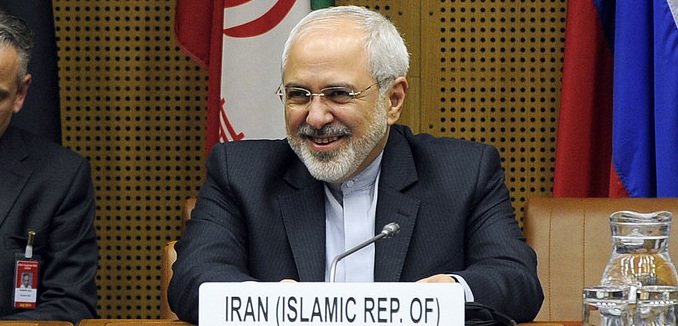The Institute for Science and International Security published a paper Tuesday containing new details about Iran’s nuclear weapons program and demanding that the International Atomic Energy Agency ensure that Iran’s nuclear weapons program is “ended in an irretrievable permanent manner.”
The latest report — authored by David Albright, a former weapons inspector and president of the institute; Olli Heinonen, former deputy director general of the IAEA; and Andrea Stricker, a senior policy analyst at the institute — follows up on previous reports based on information contained in the Iranian nuclear archive recovered by Israel earlier this year.
According to the latest report, Iranian documents show that Iran had specific plans to build 5 ten-kiloton nuclear devices by 2003. The plans from the archive show that Iran’s planning for these weapons was very detailed, including expected costs and a timetable.
However, Iran did not develop the weapons by 2003 and reoriented its program. Iran “had put in place the infrastructure for a comprehensive nuclear weapons program capable of one day building far more, if required,” the paper reported.
Contrary to the assertions of the IAEA in late 2015, prior to the implementation of the nuclear deal, Albright, Heinonen, and Stricker write that Iran “had achieved much more than feasibility and scientific studies relating to nuclear weapons.” In fact, they continued, “Iran preserved an extensive amount of this nuclear weapons-related equipment, material, software, and other information in an archive and warehouse, the former the contents of which were partially seized by Israel, and the latter which Israel later identified.”
Though Israel had provided the files it recovered from the archive to the IAEA, the agency has not acted on the new information. In fact, the paper pointed out that Israel publicly revealed its discovery of the Iranian nuclear archive and warehouse only “after briefing the IAEA and it failed to act.”
“It is not only the Secretariat, but the IAEA Board of Governors, which has not lived up to its task,” Albright, Heinonen, and Stricker write in their conclusion. “They have created a double nonproliferation standard which, unless remedied, will decrease the chance of ensuring Iran does not build nuclear weapons and will serve as a playbook for future proliferators.”
In an op-ed published last month in The Hill, Josh Block, the President and CEO of The Israel Project, pointed out that it was becoming clearer that the IAEA did not have a full grasp of Iran’s nuclear weapons program and implications of those limits.
“The gaps in the IAEA’s knowledge — of Iran’s past nuclear work, of its military sites, of items mentioned in Section T of the nuclear deal, and of the nuclear sites discovered by Israeli intelligence — raise questions about the full extent of Iran’s nuclear program,” Block argued.
[Photo: Bundesministeriums für Europa, Integration und Äusseres / Flickr ]




